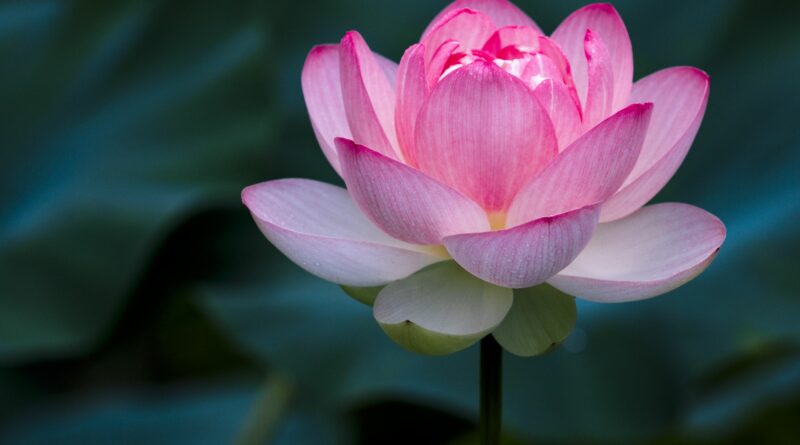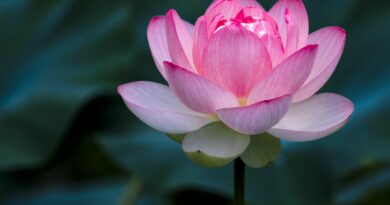“When a head has been shaved, little creeping insects like lice can’t take up residence there. In the same way, when a mind has gained release from its preoccupations and is freed from fabrication, suffering can’t take up residence at all. When this becomes your normal state, you can be called a genuine monk.”
17. What buddho is like
Luang Pu was invited to teach in Bangkok on March 31, 1978. During a Dhamma conversation, some lay people expressed their doubts about what “buddho” was like. Luang Pu was kind enough to answer:
“When you meditate, don’t send your mind outside. Don’t fasten onto any knowledge at all. Whatever knowledge you’ve gained from books or teachers, don’t bring it in to complicate things. Cut away all preoccupations, and then as you meditate let all your knowledge come from what’s going on in the mind. When the mind is quiet, you’ll know it for yourself. But you have to keep meditating a lot. When the time comes for things to develop, they’ll develop on their own. Whatever you know, have it come from your own mind.
The knowledge that comes from a mind that’s quiet is extremely subtle and profound. So let your knowledge come out of a mind quiet and still.
Have the mind give rise to a single preoccupation. Don’t send it outside. Let the mind stay right in the mind. Let the mind meditate on its own. Let it be the one that keeps repeating buddho, buddho. And then genuine buddho will appear in the mind. You’ll know for yourself what buddho is like. That’s all there is to it. There’s not a whole lot.…”
(Transcribed from a tape)
18. For those who want something good
In early September, 1983, the Housewives Association of the Interior Ministry, led by Mrs. Juap Jirarote, came to the Northeast to do some charity work. One evening they took the opportunity to stop by and pay their respects to Luang Pu at 6:20 p.m.
After they had paid their respects and asked after his health, they received some amulets from him. Seeing that he wasn’t feeling well, though, they quickly left. But there was one lady who stayed behind and took this special opportunity to ask Luang Pu, “I’d like something good [a euphemism for an amulet] from Luang Pu, too.”
Luang Pu replied, “You have to meditate to get something good. When you meditate, your mind will be at peace. Your words and deeds will be at peace. Your words and deeds will be good. When you live in a good way like this, you’ll be happy.”
The lady replied, “I have lots of duties, and no time to meditate. My government work has me all tied up, so where am I going to find any time to meditate?”
Luang Pu explained,
“If you have time to breathe, you have time to meditate.”
19. He does, but he doesn’t
In 1979, Luang Pu went to Chantaburi to rest and to visit with Ajaan Somchai. On that occasion, a senior monk from Bangkok—Phra Dhammavaralankan of Wat Buppharam, the ecclesiastical head of the southern region of the country—was also there, practicing meditation in his old age, being only one year younger than Luang Pu. When he learned that Luang Pu was a meditation monk, he became interested and engaged Luang Pu in a long conversation on the results of meditation. He mentioned his responsibilities, saying that he had wasted a lot of his life engaged in study and administration work well into his old age. He discussed different points of meditation practice with Luang Pu, finally asking him, “Do you still have any anger?”
Luang Pu immediately answered,
“I do, but I don’t pick it up.”
20. Aware in time
When Luang Pu was undergoing treatment at Chulalongkorn Hospital in Bangkok, large numbers of people came to pay their respects and listen to his Dhamma. Mr. Bamrungsak Kongsuk was among those who were interested in the practice of meditation. He was a student of Ajaan Sanawng of Wat Sanghadana in Nonthaburi province, one of the strict meditation centers of our day and time. He broached the topic of the practice of the Dhamma by asking, “Luang Pu, how does one cut off anger?”
Luang Pu answered,
“There’s nobody who cuts it off. There’s only being aware of it in time. When you’re aware of it in time, it disappears on its own.”



